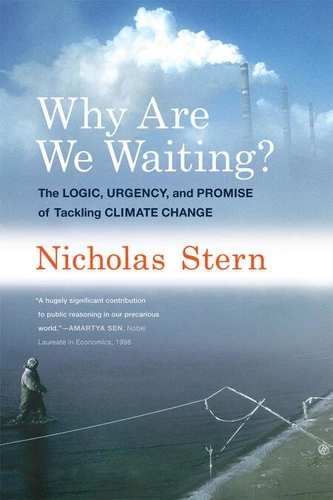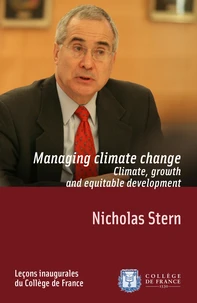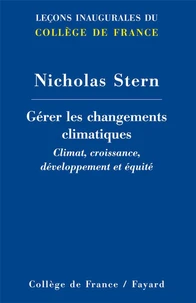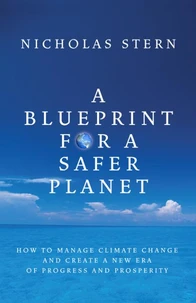Why Are We Waiting?. The Logic, Urgency, and Promise of Tackling Climate Change
Par :Formats :
Disponible dans votre compte client Decitre ou Furet du Nord dès validation de votre commande. Le format ePub protégé est :
- Compatible avec une lecture sur My Vivlio (smartphone, tablette, ordinateur)
- Compatible avec une lecture sur liseuses Vivlio
- Pour les liseuses autres que Vivlio, vous devez utiliser le logiciel Adobe Digital Edition. Non compatible avec la lecture sur les liseuses Kindle, Remarkable et Sony
- Non compatible avec un achat hors France métropolitaine
 , qui est-ce ?
, qui est-ce ?Notre partenaire de plateforme de lecture numérique où vous retrouverez l'ensemble de vos ebooks gratuitement
Pour en savoir plus sur nos ebooks, consultez notre aide en ligne ici
- Nombre de pages448
- FormatePub
- ISBN978-0-262-32921-7
- EAN9780262329217
- Date de parution24/04/2015
- Protection num.Adobe DRM
- Taille1 Mo
- Infos supplémentairesepub
- ÉditeurThe MIT Press
Résumé
An urgent case for climate change action that forcefully sets out, in economic, ethical, and political terms, the dangers of delay and the benefits of action. The risks of climate change are potentially immense. The benefits of taking action are also clear: we can see that economic development, reduced emissions, and creative adaptation go hand in hand. A committed and strong low-carbon transition could trigger a new wave of economic and technological transformation and investment, a new era of global and sustainable prosperity.
Why, then, are we waiting? In this book, Nicholas Stern explains why, notwithstanding the great attractions of a new path, it has been so difficult to tackle climate change effectively. He makes a compelling case for climate action now and sets out the forms that action should take. Stern argues that the risks and costs of climate change are worse than estimated in the landmark Stern Review in 2006-and far worse than implied by standard economic models.
He reminds us that we have a choice. We can rely on past technologies, methods, and institutions-or we can embrace change, innovation, and international collaboration. The first might bring us some short-term growth but would lead eventually to chaos, conflict, and destruction. The second could bring about better lives for all and growth that is sustainable over the long term, and help win the battle against worldwide poverty.
The science warns of the dangers of neglect; the economics and technology show what we can do and the great benefits that will follow; an examination of the ethics points strongly to a moral imperative for action. Why are we waiting?
Why, then, are we waiting? In this book, Nicholas Stern explains why, notwithstanding the great attractions of a new path, it has been so difficult to tackle climate change effectively. He makes a compelling case for climate action now and sets out the forms that action should take. Stern argues that the risks and costs of climate change are worse than estimated in the landmark Stern Review in 2006-and far worse than implied by standard economic models.
He reminds us that we have a choice. We can rely on past technologies, methods, and institutions-or we can embrace change, innovation, and international collaboration. The first might bring us some short-term growth but would lead eventually to chaos, conflict, and destruction. The second could bring about better lives for all and growth that is sustainable over the long term, and help win the battle against worldwide poverty.
The science warns of the dangers of neglect; the economics and technology show what we can do and the great benefits that will follow; an examination of the ethics points strongly to a moral imperative for action. Why are we waiting?
An urgent case for climate change action that forcefully sets out, in economic, ethical, and political terms, the dangers of delay and the benefits of action. The risks of climate change are potentially immense. The benefits of taking action are also clear: we can see that economic development, reduced emissions, and creative adaptation go hand in hand. A committed and strong low-carbon transition could trigger a new wave of economic and technological transformation and investment, a new era of global and sustainable prosperity.
Why, then, are we waiting? In this book, Nicholas Stern explains why, notwithstanding the great attractions of a new path, it has been so difficult to tackle climate change effectively. He makes a compelling case for climate action now and sets out the forms that action should take. Stern argues that the risks and costs of climate change are worse than estimated in the landmark Stern Review in 2006-and far worse than implied by standard economic models.
He reminds us that we have a choice. We can rely on past technologies, methods, and institutions-or we can embrace change, innovation, and international collaboration. The first might bring us some short-term growth but would lead eventually to chaos, conflict, and destruction. The second could bring about better lives for all and growth that is sustainable over the long term, and help win the battle against worldwide poverty.
The science warns of the dangers of neglect; the economics and technology show what we can do and the great benefits that will follow; an examination of the ethics points strongly to a moral imperative for action. Why are we waiting?
Why, then, are we waiting? In this book, Nicholas Stern explains why, notwithstanding the great attractions of a new path, it has been so difficult to tackle climate change effectively. He makes a compelling case for climate action now and sets out the forms that action should take. Stern argues that the risks and costs of climate change are worse than estimated in the landmark Stern Review in 2006-and far worse than implied by standard economic models.
He reminds us that we have a choice. We can rely on past technologies, methods, and institutions-or we can embrace change, innovation, and international collaboration. The first might bring us some short-term growth but would lead eventually to chaos, conflict, and destruction. The second could bring about better lives for all and growth that is sustainable over the long term, and help win the battle against worldwide poverty.
The science warns of the dangers of neglect; the economics and technology show what we can do and the great benefits that will follow; an examination of the ethics points strongly to a moral imperative for action. Why are we waiting?








